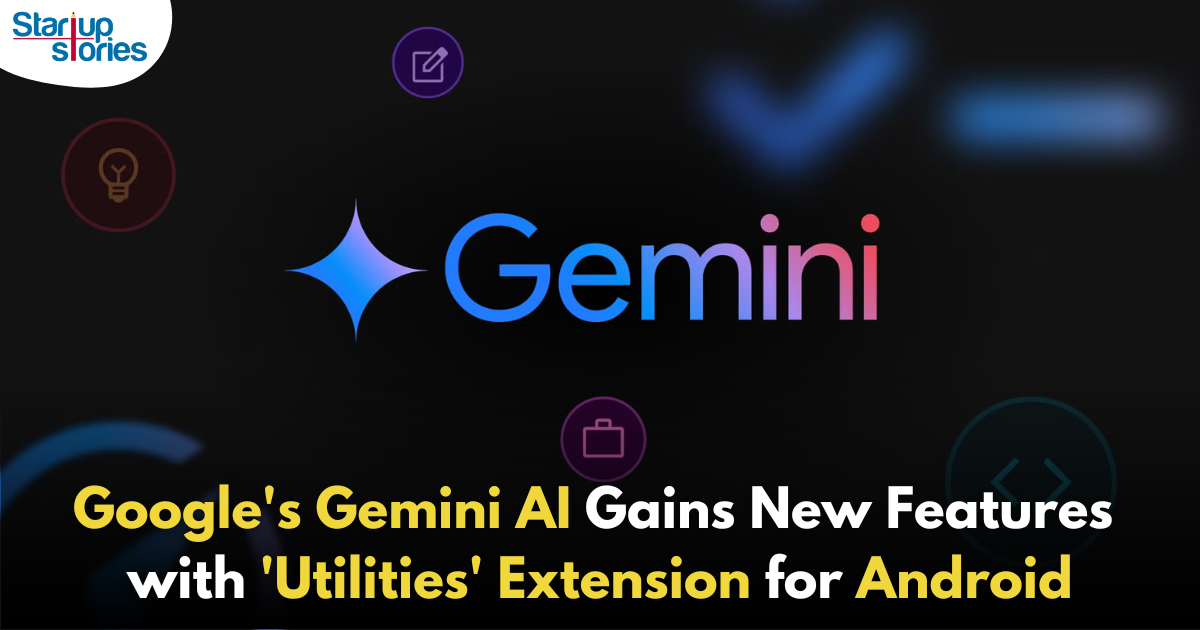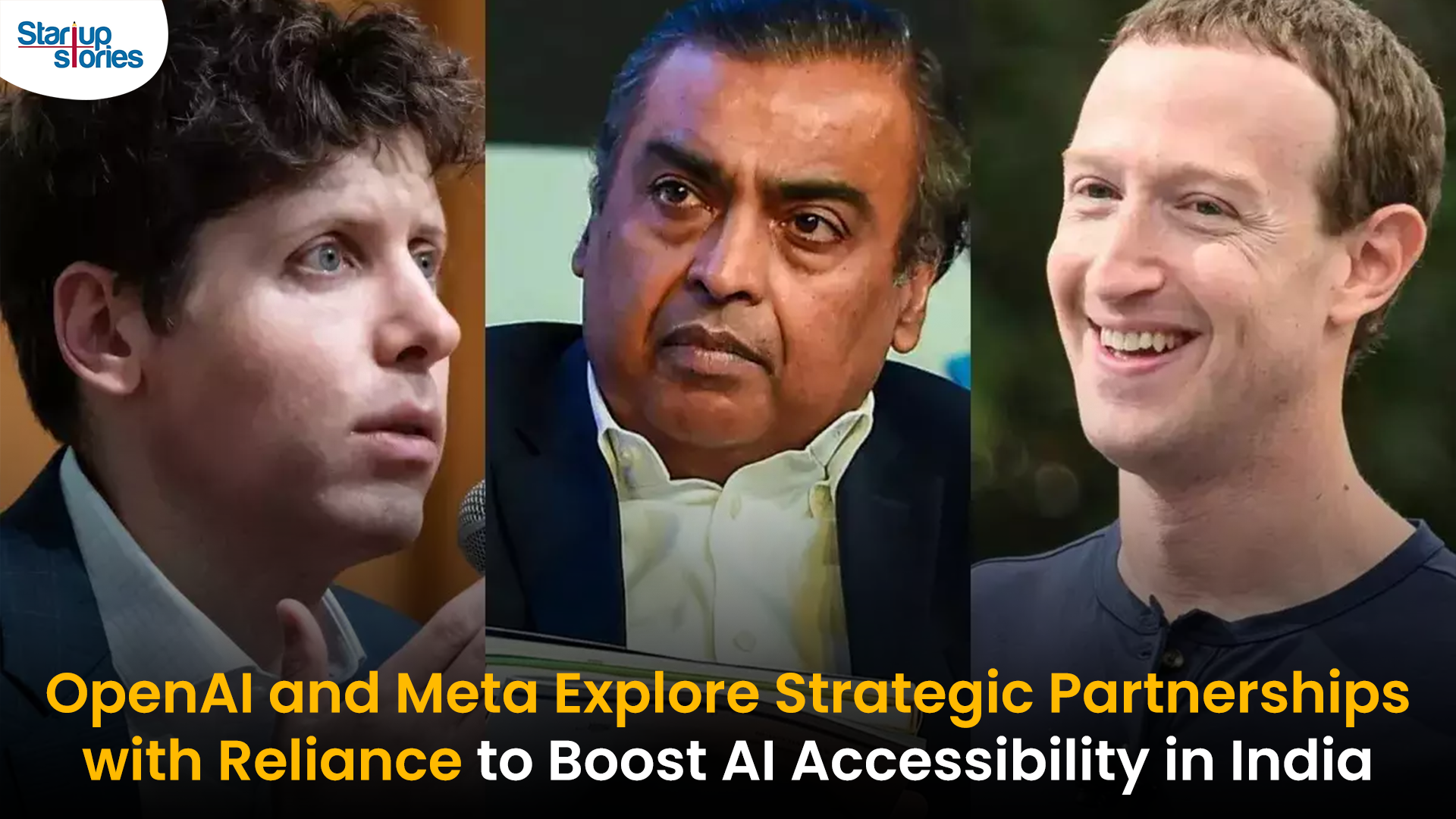Artificial Intelligence
Google’s Gemini AI Expands Capabilities with New ‘Utilities’ Extension on Android!

Google’s Gemini AI assistant is enhancing its functionality on Android devices with the introduction of the Utilities extension, designed to perform a wider range of on-device tasks. Initially previewed at Google I/O 2024, this extension aims to elevate user experience by enabling Gemini to handle various device management functions, moving beyond the traditional voice assistant capabilities. The rollout of the Utilities extension is currently underway on the Gemini mobile app and is expected to reach more Android devices soon.
Key Features of Gemini’s Utilities Extension
The Utilities extension introduces several new capabilities that significantly expand Gemini’s utility:
Expanded Device Management
- Set and Manage Alarms and Timers: Users can easily create and manage alarms and timers directly through voice commands.
- Control Device Features: Gemini can adjust volume levels, display brightness, and operate the flashlight.
- Media Playback Management: Users can control music and video playback seamlessly.
- App and Settings Control: The extension allows users to open specific apps, websites, and device settings, although it currently does not support opening particular web pages or using features like Find My Device.
Lock Screen Access
With the lock screen settings enabled, Gemini can manage essential functions even when the device is locked. Users can:
- Set or silence alarms
- Control timers
- Activate features like Do Not Disturb or Battery Saver
- Take photos or screenshots
Integration with Pixel Screenshots
For Pixel 9 users, Gemini can directly interact with the Pixel Screenshots app, allowing them to locate specific screenshots or retrieve information from within the app, enhancing the overall user experience.
How to Enable the Utilities Extension
To activate the Utilities extension on your Android device, follow these steps:
- Open the Gemini mobile app and ensure it is set as your primary assistant, configured to respond in English.
- Tap on your Google Account menu in the top right corner.
- Select “Gemini Apps Activity” and turn it on.
Significance of the Update
The introduction of the Utilities extension represents a significant step for Google as it seeks to position Gemini as a viable alternative to Google Assistant. Many users have expressed concerns about Gemini’s initial lack of basic functionalities that were previously available through Assistant. With this update, Gemini can now perform many of these essential tasks natively on Android devices.
As Google continues to enhance Gemini’s capabilities, it aims to compete more effectively with other AI-driven assistants like OpenAI’s ChatGPT and Microsoft’s Copilot. This expansion also aligns with Google’s broader strategy to integrate AI more deeply into its ecosystem, making everyday tasks easier for users.
Future Outlook
While some features are currently limited—such as not being able to change language settings or access specific web pages—the ongoing development of Gemini suggests that future updates may address these gaps. The gradual rollout of the Utilities extension indicates Google’s commitment to refining its AI assistant offerings based on user feedback.
In conclusion, with the launch of the Utilities extension, Google’s Gemini AI is set to provide a more versatile and integrated assistant experience for Android users, marking a notable evolution in how users interact with their devices. As this technology continues to develop, users can expect further enhancements that will make their interactions with technology smoother and more intuitive.
Artificial Intelligence
Adopt AI Secures $6 Million to Power No-Code AI Agents for Business Automation

Adopt AI, a San Jose and Bengaluru-based agentic AI startup, has raised $6 million in seed funding led by Elevation Capital, with participation from Foster Ventures, Powerhouse Ventures, Darkmode Ventures, and angel investors. The funding will be used to expand the company’s engineering and product teams and to scale enterprise deployments of its automation platform.
Founded by Deepak Anchala, Rahul Bhattacharya, and Anirudh Badam, Adopt AI offers a platform that lets businesses automate workflows and execute complex actions using natural language commands, without needing to rebuild existing systems. Its core products include a no-code Agent Builder, which allows companies to quickly create and deploy AI-driven conversational interfaces, and Agentic Experience, which replaces traditional user interfaces with text-based commands.
The startup’s technology is aimed at SaaS and B2C companies in sectors like banking and healthcare, helping them rapidly integrate intelligent agent capabilities into their applications. Adopt AI’s team includes engineers from Microsoft and Google, with Chief AI Officer Anirudh Badam bringing over a decade of AI experience from Microsoft.
The company has also launched an Early Access Program to let businesses pilot its automation solution and collaborate on new use cases.
Artificial Intelligence
Social Media Platforms Push for AI Labeling to Counter Deepfake Risks

Social media platforms are intensifying efforts to combat the misuse of deepfake technology by advocating for mandatory AI labeling and clearer definitions of synthetic content. Deepfakes, created using advanced artificial intelligence, pose significant threats by enabling the spread of misinformation, particularly in areas like elections, politics, and personal privacy.
Meta’s New Approach
Meta has announced expanded policies to label AI-generated content across Facebook and Instagram. Starting May 2025, “Made with AI” labels will be applied to synthetic media, with additional warnings for high-risk content that could deceive the public. Meta also requires political advertisers to disclose the use of AI in ads related to elections or social issues, aiming to address concerns ahead of key elections in India, the U.S., and Europe.
Industry-Wide Efforts
Other platforms like TikTok and Google have introduced similar rules, requiring deepfake content to be labeled clearly. TikTok has banned deepfakes involving private figures and minors, while the EU has urged platforms to label AI-generated media under its Digital Services Act guidelines.
Challenges Ahead
Despite these measures, detecting all AI-generated content remains difficult due to technological limitations. Experts warn that labeling alone may not fully prevent misinformation campaigns, especially as generative AI tools become more accessible.
Election Implications
With major elections scheduled in 2025, experts fear deepfakes could exacerbate misinformation campaigns, influencing voter perceptions. Social media platforms are under pressure to refine their policies and technologies to ensure transparency while safeguarding free speech.
Artificial Intelligence
Transforming India’s AI Landscape: OpenAI and Meta’s Collaborative Talks with Reliance Industries

OpenAI and Meta Platforms are reportedly in discussions with India’s Reliance Industries to explore potential partnerships aimed at enhancing their artificial intelligence (AI) offerings in the country. This development underscores India’s growing significance in the global AI landscape.
Key Aspects of the Discussions
- Partnership with Reliance Jio: One of the main focuses is a potential collaboration between Reliance Jio and OpenAI to facilitate the distribution of ChatGPT in India. This could enable wider access to advanced AI tools for businesses and consumers, leveraging Reliance’s extensive telecommunications network.
- Subscription Price Reduction: OpenAI is considering reducing the subscription cost for ChatGPT from $20 to a more affordable price, potentially just a few dollars. While it is unclear if this has been discussed with Reliance, such a move could significantly broaden access to AI services for various user demographics, including enterprises and students.
- Infrastructure Development: Reliance has expressed interest in hosting OpenAI’s models locally, ensuring that customer data remains within India. This aligns with data sovereignty regulations and addresses growing concerns about data privacy. A planned three-gigawatt data center in Jamnagar, Gujarat, is expected to serve as a major hub for these AI operations.
Market Implications
These potential partnerships reflect a broader trend among international tech firms aiming to democratize access to AI technologies in India. If successful, they could reshape India’s AI ecosystem and accelerate adoption across various sectors. As negotiations continue, stakeholders are closely monitoring how these alliances may impact India’s technological landscape and its position as a leader in AI innovation.













Bonus de ^inregistrare Binance
April 1, 2025 at 9:35 pm
Thank you for your sharing. I am worried that I lack creative ideas. It is your article that makes me full of hope. Thank you. But, I have a question, can you help me?
Bonus Pendaftaran di Binance
October 30, 2025 at 11:34 am
Can you be more specific about the content of your article? After reading it, I still have some doubts. Hope you can help me.
谷歌外推
November 8, 2025 at 2:00 pm
采用高效谷歌外推策略,快速提升网站在搜索引擎中的可见性与权重。谷歌外推
MM88
November 10, 2025 at 1:22 pm
Khám phá thế giới giải trí trực tuyến đỉnh cao tại MM88, nơi mang đến những trải nghiệm cá cược thể thao và casino sống động.
站群程序
November 12, 2025 at 3:04 pm
搭载智能站群程序,自动化搭建与管理,为SEO项目提供核心驱动力。站群程序
iwin
November 17, 2025 at 2:22 am
iwin – nền tảng game bài đổi thưởng uy tín, nơi bạn có thể thử vận may và tận hưởng nhiều tựa game hấp
J88
November 20, 2025 at 10:06 pm
Đến với J88, bạn sẽ được trải nghiệm dịch vụ cá cược chuyên nghiệp cùng hàng ngàn sự kiện khuyến mãi độc quyền.
Kuwin
November 21, 2025 at 10:21 pm
kuwin sở hữu kho game đa dạng từ slot đến trò chơi bài đổi thưởng, mang đến cho bạn những giây phút giải trí tuyệt vời.
clonex
December 12, 2025 at 6:14 am
Thanks for sharing. I read many of your blog posts, cool, your blog is very good.
Bing Bong Casino Freispiele
December 20, 2025 at 6:41 am
Der Wunderwins Casino bietet Ihnen Boni für
sogar 3 ersten Einzahlungen und jeden Samstag einen Cashback für die Einzahlungen von dieser Woche.
Sie werden bei diesem Anbieter etliche bewundernswerte Sachen finden. Eine solche Liste der
Zahlungsoptionen, wie Sie es auf der Web-Seite des Betreibers finden können,
ist der Inbegriff eines reichen Angebots. Das Tischspiele-Angebot hat meistens auch die Klassiker
dabei, wie bei den Live Dealer – Spielen, d. Bei den Wunderwins Casino finden Sie eine sehr reiche und wechselhafte Auswahl an Slots; alle möglichen Themen und Arten.
Verdoppeln Sie Ihre Einzahlung und erhalten Sie bis zu 550€/$ mit einem 100%-Bonus + holen Sie
sich Freispiele für fünf aufeinanderfolgende Tage bei Pimped oder Fire in the hole xBOMB Der Betreiber
hat eine große Anzahl an Slots, Live Dealer und Live Games,
Tischspielen und hat besondere Kategorien wie Bonus Buy, Megaways und High Volatility.
Wie schon oben erwähnt, mit Slots kommen verschiede Features, die durch bestimmte Linien-Kombinationen freigeschaltet werden und Sie mit Boni oder
Freispielen belohnen können. Sie können dabei mit echten Dealern kommunizieren und nach Herzenslust spielen, da die Live Spiele 24 Stunden dauern. Sehr einfach zu
spielen und gerade richtig für die Zeit, wenn Sie ein bisschen Casino genießen möchten, aber ohne ernste Verpflichtungen und Risiko.
Verdoppeln Sie Ihre Ersteinzahlung mit bis zu 550 Euro für 100% und 100 Freispiele für die Slots Reactoonz oder Fire in the hole xBOMB
Mit über 9.000 verfügbaren Spielen bietet der Anbieter eine deutlich größere
Auswahl. 20 Freispiele ohne Einzahlung & 200% bis 200€ + 200 Freispiele Verdreifachen Sie Ihre
zweite Einzahlung mit einem 200%-Bonus und erhalten Sie bei Beantragung Ihres
2.
References:
https://online-spielhallen.de/druckgluck-casino-bewertung-meine-ausfuhrliche-analyse/
online gambling Australia
December 26, 2025 at 8:54 pm
With over 2,600 gaming machines and countless table games, it’s
the largest casino in the Southern Hemisphere. I love that beyond the gaming, the venue offers luxury hotel rooms, fine dining, and even a theatre, so
it’s not just about gambling but a full entertainment
experience. In Australia, these land-based casinos
are fully legal and licensed by state authorities, so
you can trust that the games are fair and the venues follow responsible gambling rules.
Australian players can play at online casinos by signing up at licensed
sites like those featured here, depositing funds, and choosing real money casino games.
Instead, the law completely outlawed all regular AU online casinos that offered real money games like pokies, card
games, poker and live dealer tables. Titles like Jackpot Raiders, Lucky Cat, Dr.
Fortuno, and Aztec Coins deliver that steady, suspenseful build-up loved by players chasing long-term wins at top online
casinos real money sites. The best online casinos Australia for real money typically offer match bonuses on first deposits.
Yes, winning real money while playing casino games is
possible in online casinos that accept Australian players and are
licensed to accept real money wagers.
Still wondering what is the best online casino in Australia?
Just open your online casino account, verify you are human, head to the cashier section,
choose your method, and follow the on-screen prompts.
Here are the most common ways Aussies fund and cash out at online gambling Australia sites.
Check the multiplier on wagering, whether it’s bonus-only or deposit+bonus,
max bet limits, and the timer to clear it.
best Australian online casinos
December 27, 2025 at 6:07 am
It’s the same rocket play casino real money experience, just in your pocket.
For players who want to enjoy rocketplay online casino without stressing over safety, the setup here holds up.
And if you’re looking to rocketplay casino play online
without babysitting your deposit, this one ticks the right boxes.
The minimum deposit at RocketPlay Casino Australia is 30 AUD, giving members
access to casino games, bonuses, and weekly rewards.
The best Australian online casinos share several
characteristics, but the best of them provide all the
following. We’ve investigated and reviewed the
top online casinos in Australia to give you a sense of what
to expect. For details search rocketplay no deposit bonus and the full Bonus T&C in your profile.
http://inprokorea.com/bbs/board.php?bo_table=free&wr_id=2750895
December 29, 2025 at 11:59 am
online slot machines paypal
References:
http://inprokorea.com/bbs/board.php?bo_table=free&wr_id=2750895
kaymack.careers
December 29, 2025 at 12:12 pm
online roulette paypal
References:
https://kaymack.careers/employer/best-65-sites/
fkyapfuf
February 3, 2026 at 6:55 pm
https://askoff.ru
Kisisel Hesap Olusturun
February 11, 2026 at 7:16 pm
Your point of view caught my eye and was very interesting. Thanks. I have a question for you.